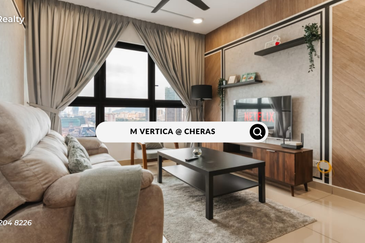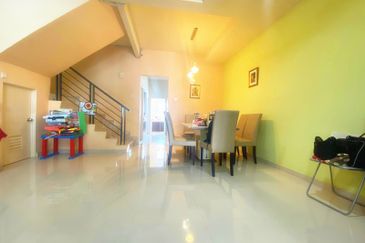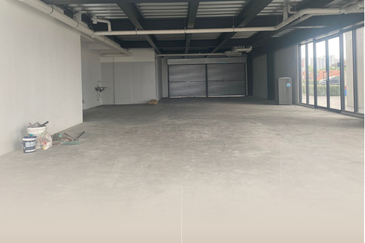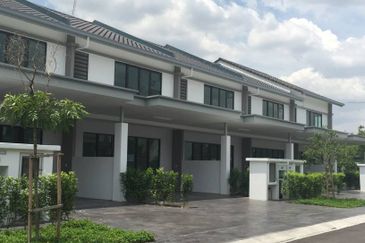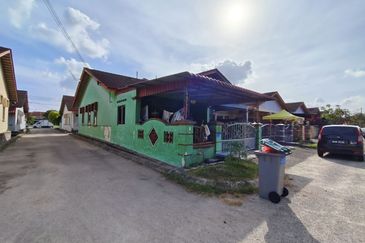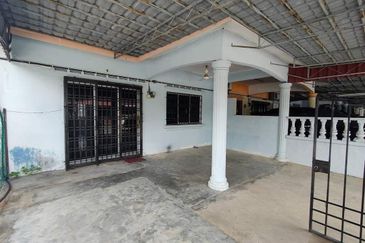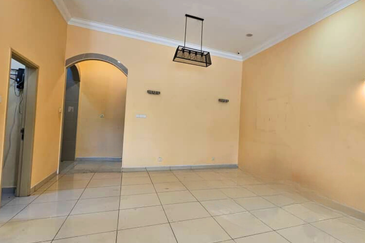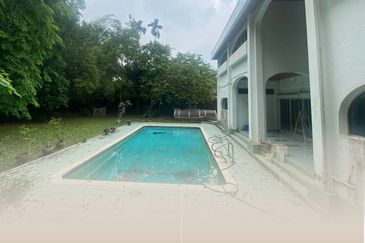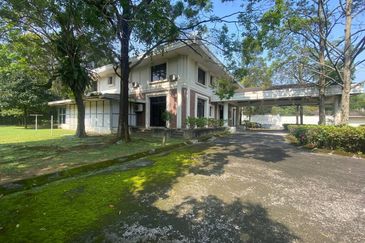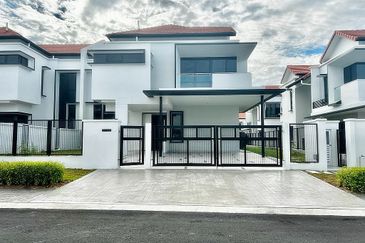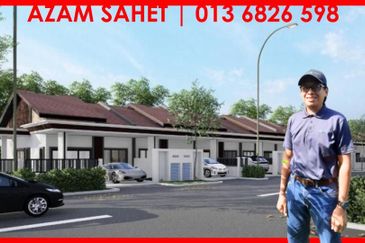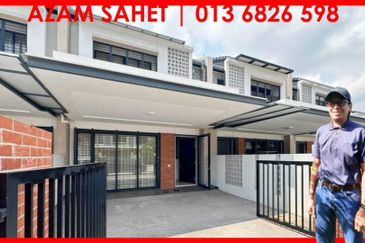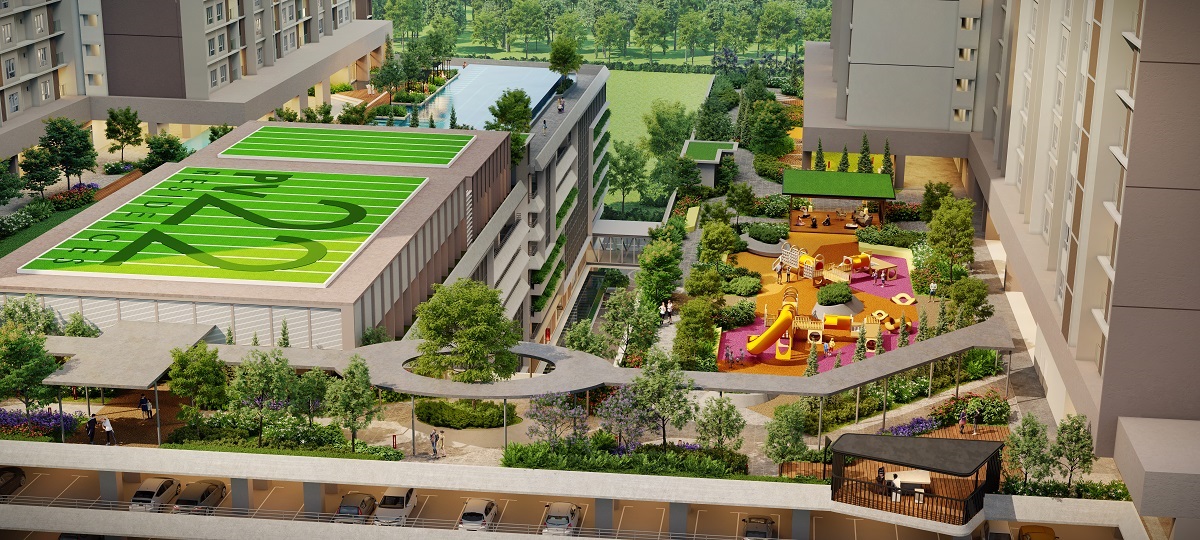This is Part 2 of the Q&A with speakers following TheEdgeProperty.com Symposium on Property Management 2017 on April 8. Part 2 features only questions directed at Chris Tan, managing partner of Chur Associates who received the most number of questions. Please note that the replies reflect the personal views of the speaker and do not constitute legal advice.
Chur Associates founder and managing partner Chris Tan
 Is it legal to renovate the balcony of strata units such as installing window panels or sealing it up with concrete? Does the local council have the power to approve such renovations?
Is it legal to renovate the balcony of strata units such as installing window panels or sealing it up with concrete? Does the local council have the power to approve such renovations?
Pursuant to Paragraph 11 of the bylaws in the Third Schedule of the Strata Management (Maintenance and Management) Regulations 2015, a proprietor shall not change the appearance, colour code and façade of any part on the exterior of his parcel without the prior written approval of the Management Corporation (MC) (or Joint Management Body (JMB)) and, where necessary, the approval of the appropriate authority.
The balcony of a strata unit is part of the façade and hence if one wants to renovate it, one would need prior written consent from the management. Each local council has its own regulations regarding renovations hence one would need to enquire with the relevant council on whether prior approval is needed.
I am living in a 120-unit apartment. It was handed over to us two years ago. Can I suggest to my JMB to consider forming a Sdn Bhd? Although it is a small property, it has a lot of unused space. You could easily build another block. So if we become a Sdn Bhd, can we develop that land and whatever money received given to owners as dividend?
The unused space forms part of the common property. Pursuant to Section 17B(1) of the Strata Titles Act 1985 (STA), the MC shall become the proprietor of the common property. As the management is the proprietor of the unused space, the next question would be: can the management develop the space and thereafter transfer the individual units to buyer(s)? Section 17B(3)(b) of the STA states that the MC does not have the power to transfer charges or lien any portion of the common property on which the building stands. Therefore, it is not feasible to develop the unused space.
(i) The JMB has been formed and took over the management from the developer since 2015. Recently, I found out that the maintenance fee for the penthouse, which belongs to the developer (unsold unit), was undercharged by 40% during their management period. The penthouse is over 7,600 sq ft, but was only charged a maintenance fee based on 4,500 sq ft. What can the JMB do about this?
You may file a claim with the Strata Management Tribunal, to order the developer to pay the said unbilled service charges.
(ii) Can the developer still collect outstanding service charges after the JMB has taken over the management account?
No, the developer has no right/power to collect the outstanding service charges.
(iii) Can the JMB give power to the developer to collect the outstanding service charges until a cut-off date?
Pursuant to Section 16(2) of the Strata Management Act 2013 (SMA), any right, power or remedy granted to the developer in respect of the charges, contribution to the sinking fund and any other assets of the maintenance account and the sinking fund account shall vest in the JMB on the date of the expiry of the developer’s management period and the JMB shall have the same right, power or remedy as if it had at all times been a right, power or remedy of the JMB. Therefore, the JMB has the power and right to collect those outstanding charges without giving such power to the developer.
I live in an apartment project with residential title. There were no shops/retail lots stated in the Development Order approval from the local authority. But after the management of the property was taken over by the JMB, the developer claimed that they owned the shops/retail lots and the rental that was collected by the developer. Should these shops/retail lots be treated as common property and does the rental income belong to JMB?
In a strata development, areas that are not part of any parcel (including any accessory parcel) shall be part of the common property. The proprietor of the common property is the management. Therefore, if the retail lots are not indicated as part of an individual parcel (or accessory parcel) in the strata plan, it shall be part of the common property and any income generated from them shall belong to the JMB. Apart from referring to the strata plan, it can be determined by payment of service charges. Should the developer claim the ownership of the said shops/retail lots, the developer shall pay service charges, etc, for the said lots.
There are some extra car parks to rent out to residents and the income was not banked into the JMB account, but into a residents’ association (RA) account. Is this legal? Aren’t extra car parks treated as common property and the income deposited into the JMB’s account?
Normally, an RA is formed by the residents/owners of a non-stratified property for the purpose of managing the gated-and-guarded community. In the event that there is a JMB, an RA may not be formed. In stratified developments, if the extra car park bays are common property, the rental income shall be deposited into the JMB’s account.
The JMB is running out of funds to maintain the building. For ad hoc repair works, the JMB bills the residents separately and has threatened the residents that their water meters would be clamped if they fail to contribute to the repair cost? Can they do that legally?
Should there be insufficient funds to maintain the buildings, the JMB may increase the service charge by passing a resolution in an EGM/AGM. However, there is no provision in the SMA/SMR that allows the management to clamp the defaulter’s water meter.
The JMB forced residents to pay extra for upgrading works in the common area such as adding a CCTV, changing the access card system, relocating the playground, etc, without getting approval or voting in the AGM? Do they have the power to decide for all the residents? The JMB even changed the minutes of the AGM to state that all residents agreed to do so.
Pursuant to Section 24(2) of the SMA, the sinking fund account shall be used for the purposes of meeting the actual or expected capital expenditure, including the upgrading of common property, and the renewal or replacement of fixtures and fittings in the common property. In short, the JMB shall utilise the sinking fund for adding the CCTV, changing the access card system, etc. Should the funds be insufficient, the JMB may increase it by passing a resolution in the AGM/EGM.
(i) Pursuant to the Second Schedule of the SMA, Para 12(3)(a, b and c), the AGM notice should have a copy of the last AGM’s minutes and audited accounts of the MC attached. I have received notice of the AGM together with the standard formats for the appointment of proxy but without the minutes and audited accounts. Is this a breach of the SMA?
Yes, this is a breach.
(ii) In the agenda of the AGM, there is only a sentence stating “Increment of service charges”, without specifying the value of increment and commencement date of increment. Is this in compliance with the SMA?
There is no provision in the SMA specifying that a budget shall be presented for increment of service charges. However, for proper practice, a budget shall always be presented for deliberation during the meeting. Pursuant to Regulation 24 of the Strata Management Regulations (SMR), within 28 days after the meeting, the MC shall issue a notice in Form 15 to all proprietors to inform them of the amount of charges, contribution to the sinking fund, and the rate of late payment interest imposed by the MC.
(iii) In Chris Tan's OMG guidebook, pg 66 part 5.1 Features of Committee, Number of Members of Committee, there is a proposal to have three committee members only who will also take on as office bearers. Are all strata owners/representatives members of the committee? Kindly provide the clause or para of the SMA which covers this area.
Subparagraph 2(1) in the Second Schedule of the SMA.
(i) What are the differences between bylaws and house rules?
Bylaws refer to the regulations regarding managing and using the parcels and common property as set out in the Third Schedule of the SMR. The parcel owners, developers, JMB/MC may by special resolution have additional bylaws. However, any additional bylaw that contradicts the bylaws in the Third Schedule shall have no effect and is void. The bylaws shall bind the parcel owners, developers, JMB/MC, tenants, lessees, charges, assignees and occupiers of the parcels. The House Rules are the regulations set out by the developer or management. The House Rules shall have the same binding effect should it be passed as additional bylaw by special resolution in a general meeting.
(ii) What punishment can be implemented when there is a breach of bylaws and/or house rules? Any references?
Please refer to the Third Schedule of the SMR.
(i) We see more foreigners moving into the condominium. The residents are worried about their safety. The building management has worked with the police to conduct raids. I would like to know: Can the JMB/building management issue a notice to all property owners to stop investors from renting out to a specific group of people/nationality?
No, as it will expose them to issues such as discrimination, investor’s right to livelihood and investor’s proprietary right.
(ii) If we have no right to stop investors from renting out to specific foreigners, what are the procedures that the building management can take to prevent nuisance or even better to reduce the number of them in the condo? How can we effectively manage this issue?
The JMB/MC may pass bylaws to control the situation.
As a real estate negotiator, I was given the appointment by a vendor, a non-Malaysian, to sell three units of his condominium units located at Kelana Jaya, Selangor.
Vendor: Muslim, non-Malaysian, units were rented out for investment.
Challenge faced: Once we sold a unit, we were told that the strata title was to be issued soon, but additional fees had to be paid to the local authorities since this was considered a Bumi-titled unit. Otherwise the authorities will not allow transfer of title to the new purchaser! This was only conveyed to us as the vendor's appointed reps after about six months of endless follow-ups with the building management office, which is affiliated with the developer. What avenues do we have as the vendor's reps to seek assistance to expedite the transfer process and why are the extra levy or fees required?
The allocation of Bumi lots in Selangor is handled by Lembaga Perumahan dan Hartanah Selangor (LPHS). It is the developer’s duty to fulfil the Bumi quota requirement. As far as we understand, should the developer wish to release the unit to non-Bumi buyers, certain requirements must be met including advertising the said unit and paying the penalty (additional fees normally paid by the developer). The developer plays a crucial part in this. Should the developer refuse to furnish more information, you can find out more from LPHS.
Do I need to inform the management if I want to rent out my property via Airbnb? Does the management have the right to stop me from renting my unit through Airbnb?
There is no need to inform the management as the management only regulates the usage of the common property and not your unit. On that same basis, the management has no right to prevent a unit from being rented out as Airbnb per say. However, the management has all the right to regulate and even restrict the usage of the common property by your guests. If permitted usage of your property is residential only, your operation of Airbnb is to be construed as commercial activity that does not fit into the permitted usage. Even if the permitted usage is commercial, a hotel-like operation would still be subject to compliance and regulation of relevant authorities as well as the local governments that have their respective policies on this subject matter.
(i) During the recent AGM of our condominium, the chairperson of the AGM had informed the unit owners that the council members had received a legal letter from the outgoing Management Council chairman regarding the chairman's car park allocation in the condo. In view of that, the secretary of the Management Council/chairperson of the recent AGM had requested from the residents "To indemnify all council members and future council members against legal suits, claims and whatsoever during the course of their duties" and "To indemnify individual council members and future individual council members against legal suits, claims and whatsoever during the course of their duties on an individual basis". The secretary of the Management Council explained that the council members were only representatives from among the owners to carry out duties at their discretion without any returns for the betterment of the condo community as a whole, and shouldn't be personally liable for any legal suits, claims or whatsoever. Twenty six unit owners voted to agree and two were against it. The rest present at the AGM abstained from voting. Since then the Management Council took it as if they had obtained the indemnity.
We, as residents, feel that we should not indemnify the Management Council members irrespective of whether individually or as a whole council, as they are already protected under the condo's master insurance coverage under professional liabilities. If we do, we will lose our legal rights.
Questions: In such a scenario, is it a violation to the Strata Management Act? And if any of the council member(s) misappropriate the accounts or misuse the condo funds, does it mean that the residents have lost their rights to sue or take action against the council member(s)? If yes, how can we rectify it?
For the benefit of council members and strata owners, the said indemnity may be amended as follows:
“To indemnify individual council members and future individual council members against legal suits, claims and whatsoever during the course of their duties on an individual basis provided that the council members carry out the duties in accordance with the SMA.”
(ii) The Management Council had requested from the residents through the AGM for additional special contributions to the sinking fund. The Management Council claimed to have received confirmation and approvals from the Commissioner of Buildings (COB) that the condo AGM had accepted and proceeded with the implementation supposedly to be used for repairing the swimming pool; repairing piping for water tanks for every floor; and painting the buildings. Estimated costs were given without any qualified contractor quotations shown or pinned on the notice board and no named contractor(s) announced for the above three items. No COB's approval letter was shown or pinned on the condo's notice board.
Vote to agree: 14
Vote against: 0
Total present: 30 unit owners + 18 proxies
Collection has proceeded without following proper procedures.
Question: Can the Management Council start collecting the contribution monies without proper procedures and transparency. No monthly/quarterly accounts for the whole of 2016 until today was pinned on the condo notice board even though several requests were made to the building managers (past and present).
There is no provision in the SMA/SMR that states the process and procedure. However, as a member of the JMB/MC, you have the right to file a claim to the Strata Management Tribunal to compel the JMB to supply the required information or documents.
(i) Even after bylaws were passed at an AGM, a penthouse was able to drastically change the façade, drill and hack the beams and pillars to construct an additional floor to seal off the air well, and break up walls adjacent to the common corridors to have additional entrances and openings to house a huge glass panel — all in breach of the bylaws. Some of the owners are very upset and want to take the property management company to the Tribunal.
(a) First question: Please advise how we should frame the claim against the property management company. I think we have a case here as some people were obviously sleeping on the job.
Normally, renovation of a unit cannot be carried out unless the management approves it. We must first determine whether it is a case of no approval or renovation that did not follow the approved plan. If it is a case of no approval with blatant contravention of the bylaw, your claim is against the penthouse owner. If it is a case of renovations that were not in accordance with the approved plan submitted earlier, your claim is also against the penthouse owner. If it is a case where the renovations were approved without complying with the bylaws, then the claim is against the management for not discharging its duty accordingly.
(b) Second question: How do we assess the damage?
You have to ask yourself, what have you suffered that requires compensation in damages.
(ii) The condo was managed by the developer for many years and during this time, many units sealed off their balconies with glass panels, had their air-con compressors indiscriminately fixed, and some even drilled and hacked the beams and pillars. One penthouse even had its façade changed. There was no action taken by the developer. So, when it was time to have our first AGM as an MC, we officially barred such activities. The questions are:
(a) Can we use these bylaws against these unit owners although the "illegal" renovations took place long before the coming into effect of the bylaws? Apparently, the bylaws do not have retrospective power nor have the power to govern the conduct of residents when the condominium was still under the developer. Is this true?
Yes, there is no retrospective effect. However, Paragraph 15 of the Third Schedule in the SMR allows the MC/JMB to require the parcel owner to rectify or restore the condition of his or her parcel (after renovation) if it affects or is likely to affect the support of shelter provided by that parcel to another parcel in the same building; or cause or is likely to cause damage or destruction to another parcel or common property.
In the event the parcel owner refuses to restore the condition or rectify within 14 days’ written notice from the JMB/MC, the JMB/MC may take actions or proceedings necessary to have that condition rectified at the parcel owner’s costs and expenses.
(b) Assuming we can take action and obtain judgement, how do we enforce when there are so many of them?
Enforce on a case-by-case basis, one by one.
This story first appeared in TheEdgeProperty.com pullout on April 21, 2017. Download TheEdgeProperty.com pullout here for free.
TOP PICKS BY EDGEPROP
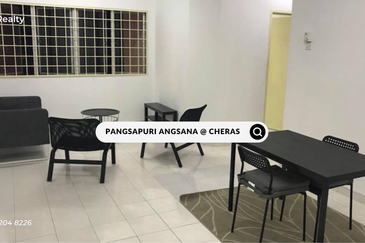
Pangsapuri Angsana, Bandar Mahkota Cheras
Cheras, Selangor
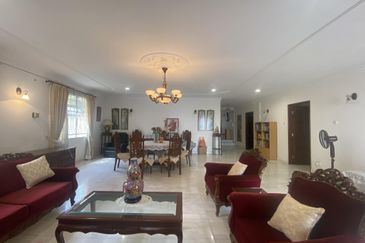
Taman Tasik Titiwangsa
Titiwangsa, Kuala Lumpur
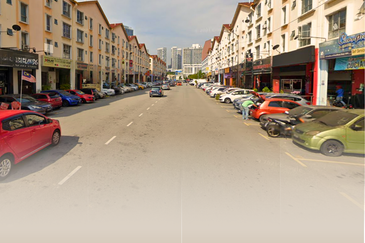
Pusat Komersial Seksyen 7
Shah Alam, Selangor
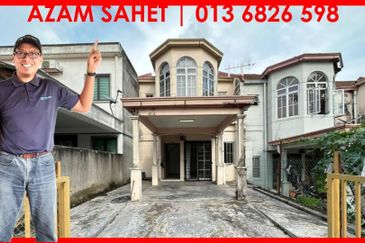
Bandar Puncak Alam
Bandar Puncak Alam, Selangor
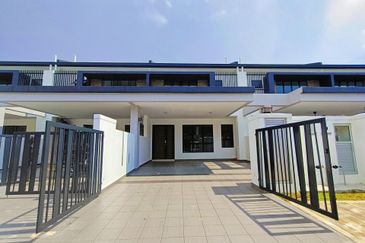
RIMBUN KIARA @ SEREMBAN 2
Seremban, Negeri Sembilan

